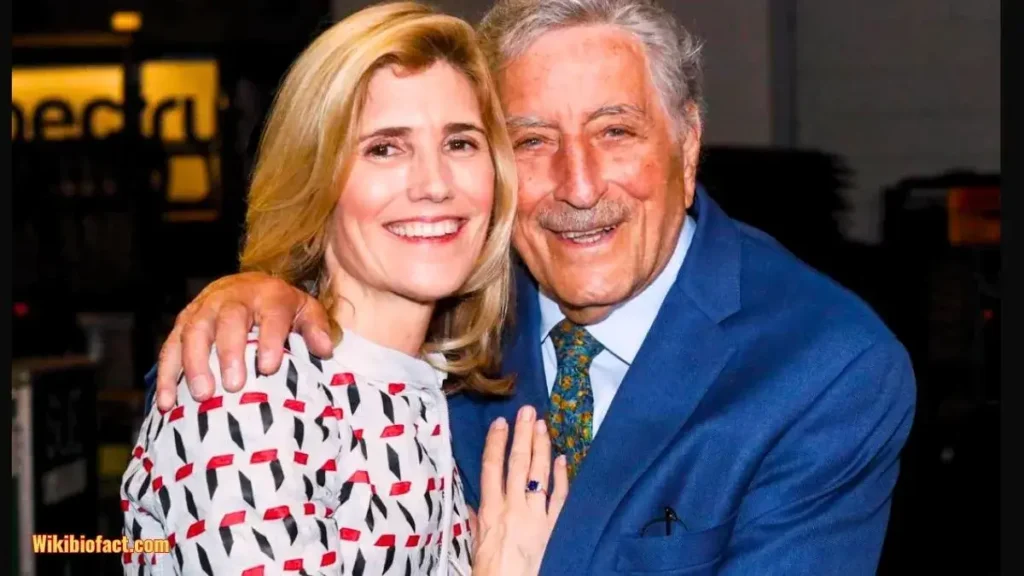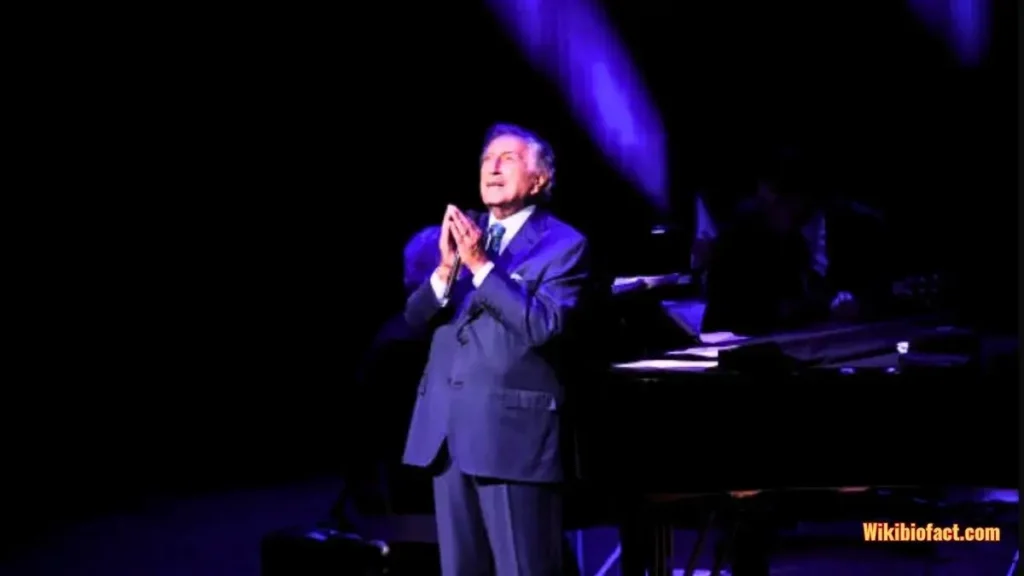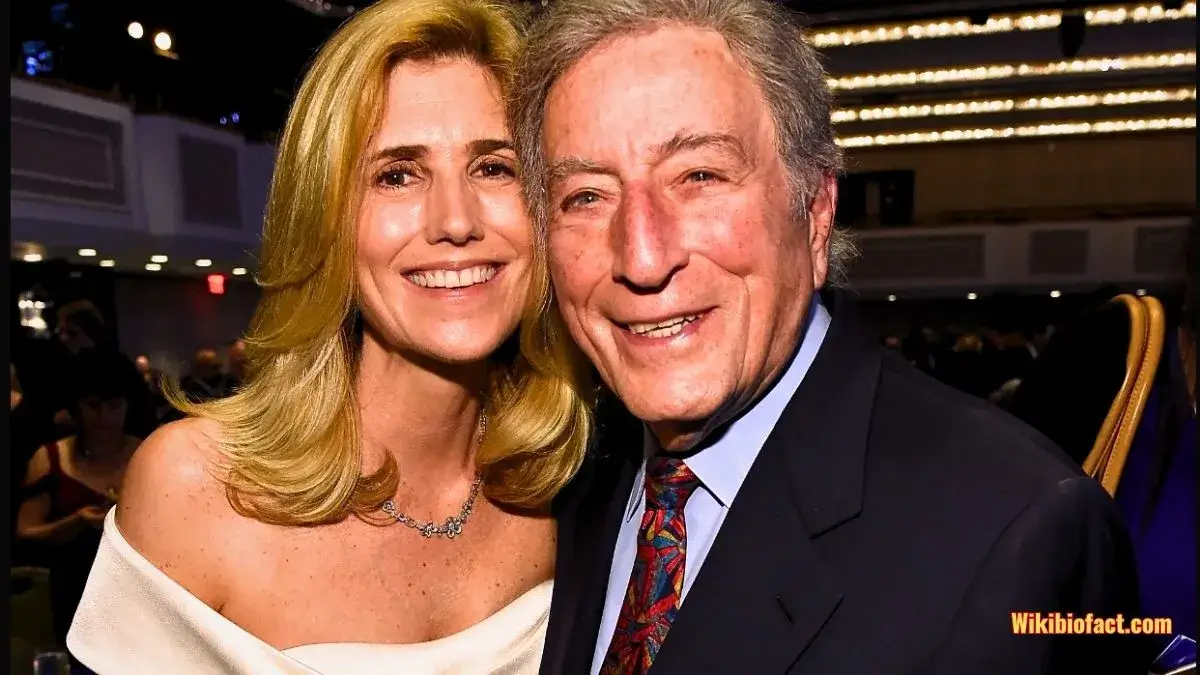
Tony Bennett the Maestro of the American songbook passess away
Tony Bennett the Maestro of the American songbook passess away at the age of 96 on 21 July 2023. The iconic and internationally renowned singer, known for epitomizing the American Songbook, has passed away at the age of 96. Tony Bennett net worth stands at impressive $200 million.
On Friday morning, the representative for the legendary singer confirmed that Bennett breathed his last in New York City. Despite being diagnosed with Alzheimer’s disease in 2016, Tony’s spirit remained undeterred.
Throughout the years, he continued to grace the stage with occasional live performances and even released new music, showcasing his unwavering passion for his craft.
In a testament to his enduring talent, Tony Bennett achieved a remarkable milestone at the age of 95 in 2021.
His second duet album with Lady Gaga, titled “Love For Sale,” soared into the Billboard Top 10. Additionally, he bid farewell to his illustrious career with touching performances at Radio City Music Hall, marking a heartwarming celebration of his unparalleled legacy.
People Also Read– Surface Pressure Song Lyrics
People Also Read– Michael Gambon Passes At 82, Dumbledore in Harry Potter
People Also Read– ‘X’ Emerges Twitter’s New Identity
People Also Read– James Mangold Net Worth and Bio
People Also Read– Barbie and Oppenheimer Box office Collection
Bennett’s Timeless Charm: The Suave Crooner of the 1950s
Emerging as a debonair crooner in the 1950s, Bennett swiftly cemented his position as one of the era’s most beloved hit-makers on the radio.
With an undeniable showmanship and an intimate nightclub allure, he embodied that persona both on and off the stage, much like his impeccably tailored suits—age-appropriate yet eternally stylish.
At the tender age of 20, Bennett ventured into recording his first sides, including the soulful rendition of “St. James Infirmary Blues.”
This memorable track was crafted alongside a U.S. Army band in Germany shortly after World War II, marking the beginning of a remarkable journey that would leave an indelible mark on the world of music.
Renowned as Tony Bennett, the moniker was bestowed upon him by none other than Bob Hope. However, in the quaint neighborhood of Astoria, Queens, New York, he was born as Anthony Dominick Benedetto.
Tragedy struck at a young age when his father passed away when he was just 10 years old. This compelled him to take on adult responsibilities prematurely, leading him to leave high school and take up various odd jobs to support his family.

Happy doing that” Little did he know that his passion and talent for singing would take him on a remarkable path, making him a beloved and celebrated icon in the world of music.
During the interview, Bennett fondly recalled that music ran deep in his family’s roots, tracing back to Italy. His father, an opera enthusiast, enchanted the local community with his captivating performances.
“In Calabria,” he reminisced, “he had a reputation for singing atop the mountain, and the entire valley would delight in his melodious voice.”
Inspired by his family’s musical heritage, Bennett himself pursued a formal education in opera, specifically delving into the art of bel canto singing, thanks to the G.I. bill.
A wise instructor once advised him to observe the phrasing of instrumentalists, urging him to explore and find his unique voice through this distinctive approach.
This guidance would prove invaluable as he embarked on a musical journey that would solidify his status as an iconic and influential singer of his time.
In a stroke of luck, Bennett’s demo of “The Boulevard Of Broken Dreams” caught the attention of producer Mitch Miller at Columbia Records, leading to a signing in 1950.
It didn’t take long for him to become a sensation, selling millions of records and unleashing a decade-long streak of hit songs.
While he gained fame as a crooner, Bennett’s heart belonged to jazz, although he had reservations about fully embracing it.
His accompanist and arranger of over 50 years, Ralph Sharon, shared with NPR in 1998, “He always says, ‘I’m not a jazz singer,’ but he has a great feel for a beat.
” Interestingly, even legendary figures like Duke Ellington and Miles Davis recognized the jazz sensibility that Bennett infused into his pop music.
Musicians loved performing alongside Tony, appreciating the unique flavor he brought to his songs, making him a magnetic presence both on and off the stage.
Driven by his admiration for jazz legends, Bennett aspired to collaborate and sing with them. Using his pop stardom as a platform, he ventured into the world of jazz, recording albums alongside prominent names such as Art Blakey and the Count Basie Orchestra.
Regardless of the musical style Bennett explored, one thing remained unmistakable: his unique and identifiable sound. As his longtime accompanist, Ralph Sharon, observed, “I think you always knew it was him.”
Then, in 1962, Bennett’s career skyrocketed with the release of the iconic song, “I Left My Heart In San Francisco.”
Interestingly, the song that would become synonymous with Bennett’s legacy was an unplanned surprise. Sharon stumbled upon the sheet music tucked away in a drawer, amidst a collection of shirts, and decided to pack it before hitting the road.
Little did they know that this chance discovery would lead to one of the most cherished and defining songs of Tony Bennett’s illustrious career.
Ralph Sharon fondly recalls the memorable moment when they arrived at Hot Springs, Arkansas. As he took the sheet music out of his bag and gazed at it, he immediately knew they were headed to San Francisco next.
Intrigued by the song’s potential, he shared his excitement with Tony, exclaiming, “This is a song here that might be interesting.”
Little did they anticipate the extraordinary impact it would have. “I Left My Heart In San Francisco” transcended all expectations, skyrocketing to international fame.
It gripped the U.S. charts for nearly a year, solidifying its place as a timeless classic and earning Tony Bennett two Grammy Awards for this exceptional piece.
Amidst his unprecedented superstardom, Bennett dedicated his influential voice to support important social causes, including civil rights. In 1965, a tragic incident known as “Bloody Sunday” unfolded when peaceful protesters marching from Selma to Montgomery, Alabama, were violently attacked.
In the aftermath of this harrowing event, Harry Belafonte, the iconic singer and civil rights activist, convinced Bennett to join him on a courageous journey to Montgomery and perform.
Bennett recalled his hesitation, admitting to CNN in 2013, “I didn’t want to do it.” However, when Belafonte shared the horrifying details of the violence that had occurred, particularly the unimaginable cruelty suffered by Black individuals who were burned and had gasoline thrown on them, Bennett’s heart was moved.
He made a resolute decision, saying, “When I heard that, I said, ‘I’ll go with you.'”
In a powerful demonstration of solidarity and using his platform for a greater cause, Tony Bennett joined Harry Belafonte to lend his voice and support to the civil rights movement during this challenging and crucial period in American history.
Throughout his career, Bennett remained attuned to the evolving times, yet he held firm in his musical choices.
Unlike many who embraced the new rock sound, Bennett remained dedicated to timeless standards, refusing to sway from his musical roots. Notably, he collaborated with esteemed jazz pianist Bill Evans, resulting in two highly acclaimed albums that showcased his unwavering commitment to the classics.
While still playing in smaller venues, Bennett made occasional television appearances, gracing shows like The Muppet Show, David Letterman, The Simpsons, and MTV.
In a memorable 1994 performance on MTV Unplugged, he shared the stage with the talented k.d. lang, further solidifying his versatility and connection with diverse audiences.
The success of the show and album proved to be a turning point in Bennett’s illustrious career, opening doors to reach a brand-new generation of listeners.
For the next two decades, he continued to captivate audiences by collaborating with an array of iconic artists, including Stevie Wonder and Lady Gaga.
It was the latter who became his most enthusiastic supporter and a bridge to a legion of fresh admirers, ensuring that Bennett’s timeless voice continued to resonate with a new era of music lovers.
In a heartfelt interview with NPR in 2011, Bennett passionately expressed that music was not just his career but the very essence of his life, contributing to his remarkable longevity.
Overflowing with appreciation for life’s precious gift, he yearned to convey to the entire world the profound joy of being alive.
For Tony Bennett, being alive meant wholeheartedly pursuing his passions, which extended beyond music. Alongside his legendary singing, he found solace and fulfillment in the art of painting landscapes and portraits, often signing his work with the name “Antonio Benedetto.
” This multi-faceted approach to life allowed him to explore diverse avenues of creativity, enriching his soul and touching the hearts of those who experienced the depth of his talents.

